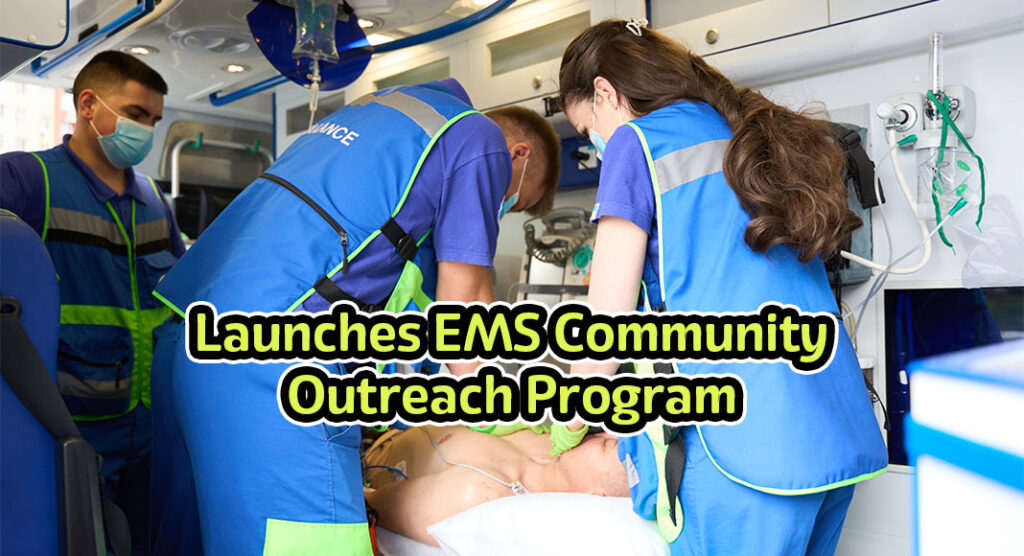
Mega Doctor News
A robust working relationship between emergency medical services (EMS) personnel and hospital emergency department staff is essential for delivering efficient and effective emergency medical care to critically ill or injured patients. Seamless communication and collaboration between EMS specialists and hospital staff ensure continuity of high-quality care, improving clinical outcomes and significantly enhancing survival and recovery rates, according to the National Library of Medicine.
In 2023, the South Texas Health System Trauma & Critical Care Institute – the largest integrated trauma and critical care network in the Rio Grande Valley – recorded 231,112 emergency visits across its 10 facilities. These include STHS McAllen’s Level I Trauma Center, STHS Edinburg and STHS Heart’s Level IV Trauma Centers, the dedicated pediatric emergency room at STHS Children’s, and six freestanding emergency departments.
Many patients arrived at STHS facilities by ambulance, with EMS providers working closely with ER staff to triage and transport them to the nearest STHS facility for life-saving treatments.
“Emergency care begins well before a patient arrives at one of our emergency rooms; it all starts on the scene with the essential care our EMS partners deliver,” says Tony De Luna, RN, Emergency Department Director and Interim Trauma Department Director, STHS McAllen. “As the first to assess and triage patients, the care they provide is crucial to patient health and safety.”
To enhance patient outcomes and save lives, EMS personnel must engage in continuing education and clinical development. The STHS Trauma & Critical Care Institute, in partnership with the STHS Graduate Medical Education (GME) Consortium’s Emergency Medicine Residency Program and STHS McAllen’s Level I Trauma Center, has launched the STHS EMS Community Outreach Program. This initiative provides important education to EMS members, including updates on best practices and the latest medical technology.
“It’s all about improving the care provided to our community,” says Michael Menowsky, MD, FACEP, an emergency medicine and critical care specialist with South Texas Health System and the Associate Program Director of the STHS GME Consortium’s Emergency Medicine Residency Program. “By providing up-to-date education on health conditions EMS personnel may encounter in the field, they’ll help us improve the care we deliver to our community.”
Healthcare is an ever-evolving field, and the training provided through the STHS EMS Community Outreach Program enables EMS providers to perform their duties with confidence and commitment, making the best decisions for patients in critical situations.
“Minutes can make all the difference in providing appropriate treatment and improving patient outcomes,” adds Dr. Menowsky, a former U.S. Air Force paramedic who worked as an EMT-paramedic at the Baltimore County Fire & EMS before pursuing his medical career. “This initiative will offer EMS providers essential education on the latest medical knowledge and advancements in medical technology, allowing them to treat their patients more effectively and efficiently.”
Since launching the STHS EMS Community Outreach Program, Dr. Menowsky has conducted continuing education for more than 150 local EMS providers, including members of Lone Star Ambulance Service, Med-Care EMS, and the Mission Fire Department’s EMS team, as well as first responders with the Edinburg Fire Department. Recent topics have included managing thoracic trauma, emergent airway management, and thermal injuries.
“The education we’re providing doesn’t just feed the minds of our local EMS providers; it helps build trust in our healthcare system,” says Dr. Menowsky. “The EMS personnel bringing patients to South Texas Health System’s emergency departments can trust that we’ll take the best care of their patients because, as educators, we’ve demonstrated our commitment to quality, compassionate care through the knowledge we’ve shared with them.”
For more information about the STHS EMS Community Outreach Program, contact the STHS McAllen Trauma Department at (956) 632-4929.










